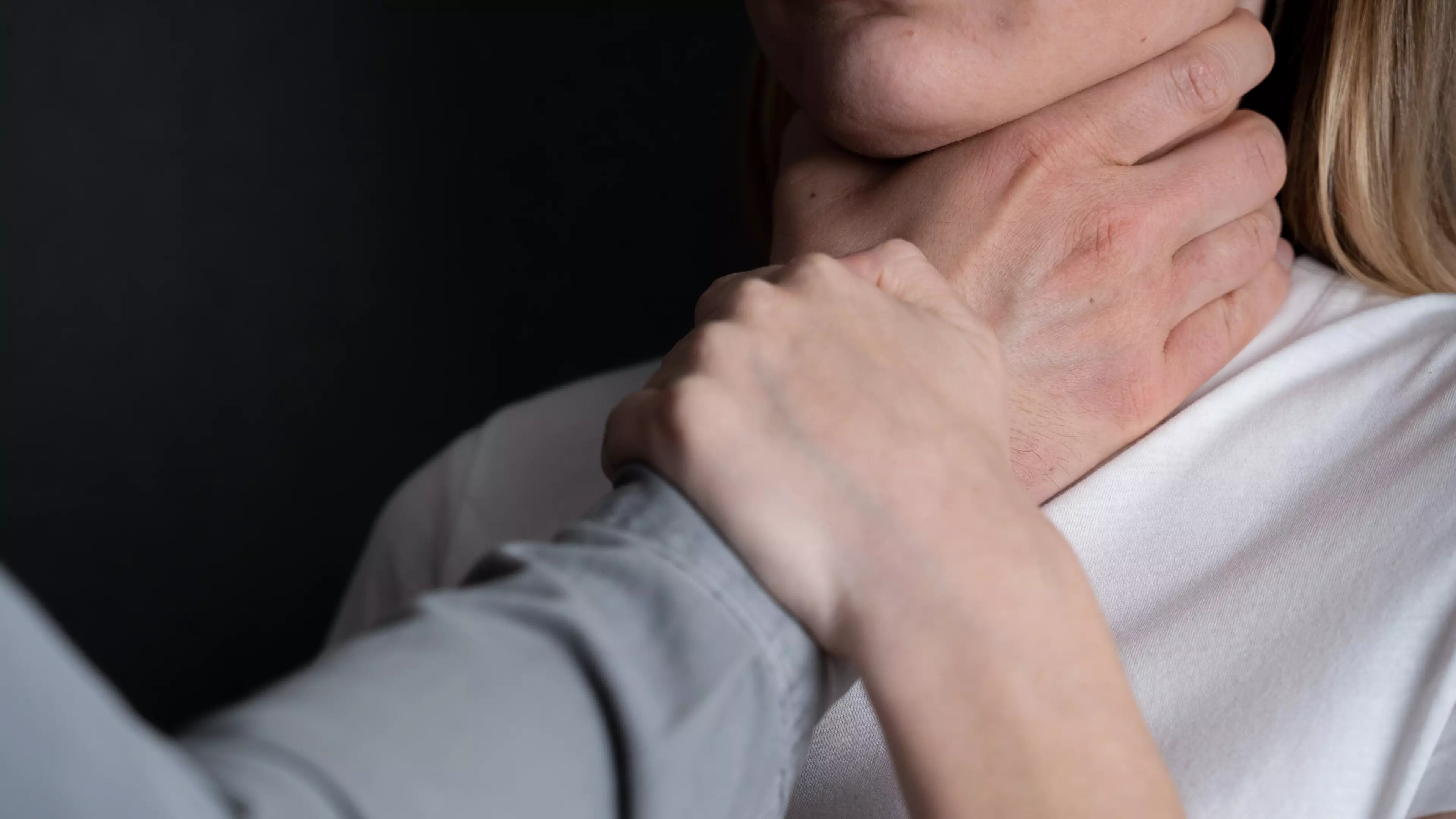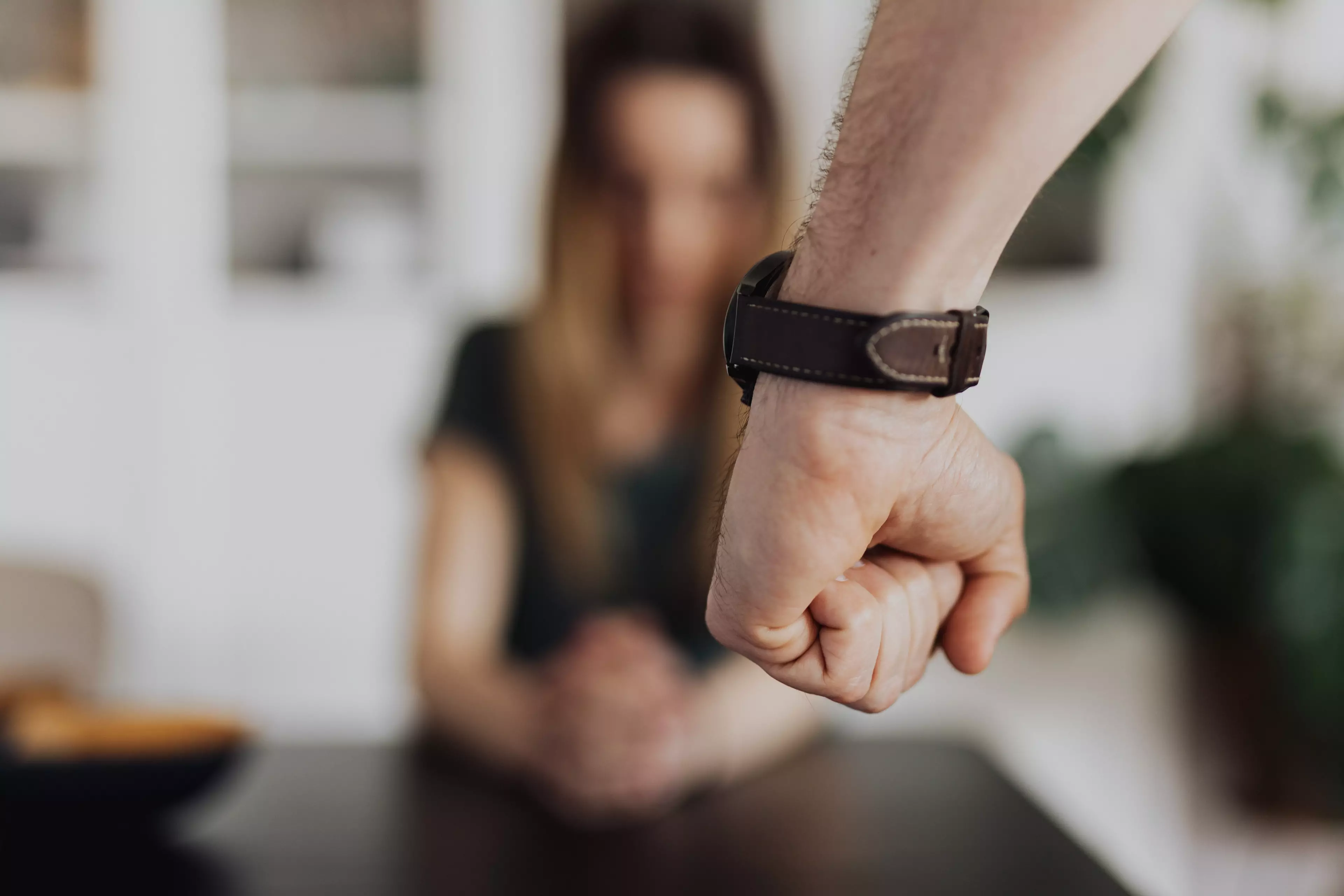
Non-fatal strangulation is set to become a specific offence in England and Wales after victims and activists campaigned to have the government recognise the seriousness of domestic abuse.
Perpetrators of the offence could now face seven years in prison, under planned new laws which will see strangulation added as an offence to a police and sentencing bill next month.

Baronness Newlove added the amendment to the upcoming domestic abuse bill as it passed through the House of Lords last week.
Advert
Non-fatal strangulation was described as a "domestic terror tactic" by victims' commissioner for England and Wales, Dame Vera Baird QC. She argued a change in the law, with an added specific offence, is required to help police to tackle the issue.
Strangulation is thought to be a significant barometer in domestic abuse cases which can go on to become fatal, with 37 per cent of survivors considered to be high risk.

A study by Bangor University, published last year, also showed a woman who survives strangulation is eight times more likely to be murdered - and could also suffer symptoms for up to several weeks after the incident. These can include cardiac arrest, stroke, miscarriage, incontinence, speech disorders, seizures, paralysis, and other forms of long-term brain injury.

However, under the current law, non-fatal strangulation often only leads to a common assault charge, or no charges at all.
Advert
Previously the government had said non-fatal strangulation could be dealt with under existing legislation, such as common assault, but campaigners argued that minimised the seriousness of the crime and let offenders off with light sentences.
"Making non-fatal strangulation a standalone offence is long overdue and will raise awareness of the awful risk and suffering it involves," Baird explained. "I congratulate Justice Secretary Robert Buckland on listening."

Nogah Ofer, solicitor at the Centre for Women's Justice which has pushed for the change, said she hoped the move would help survivors of domestic abuse to have greater confidence in pursuing their cases.
Advert
"It is time that as a society we stopped normalising and ignoring strangulation," she said. "We look forward to the police, prosecutors and medical professionals working together to address this with the seriousness it deserves."
Buckland met domestic abuse campaigners last week. "I've heard too many terrible stories of women being throttled only to see abusers get a slap on the wrist," he told the Sunday Mirror.
"Prosecutors don't have the tools to make sure these violent criminals spend long enough behind bars."

The news comes after there has been a stark rise in cases of domestic abuse in the UK due in part by the ongoing coronavirus lockdowns.
Advert
The charity Refuge, which runs the National Domestic Abuse helpline, said it was "very concerned" by the steep rise in demand for its services during lockdown.
Separate data from Counting Dead Women, a project that records the killing of women by men in the UK, identified 35 murders, as well as another 12 strongly suspected cases between 23 March and the start of July, when Covid restrictions were starting to lift after the first lockdown.
If you have been affected by this story, get in touch with the National Domestic Abuse helpline. The 24 hour freephone service is 0808 2000 247.
Topics: government, UK News, News, domestic abuse